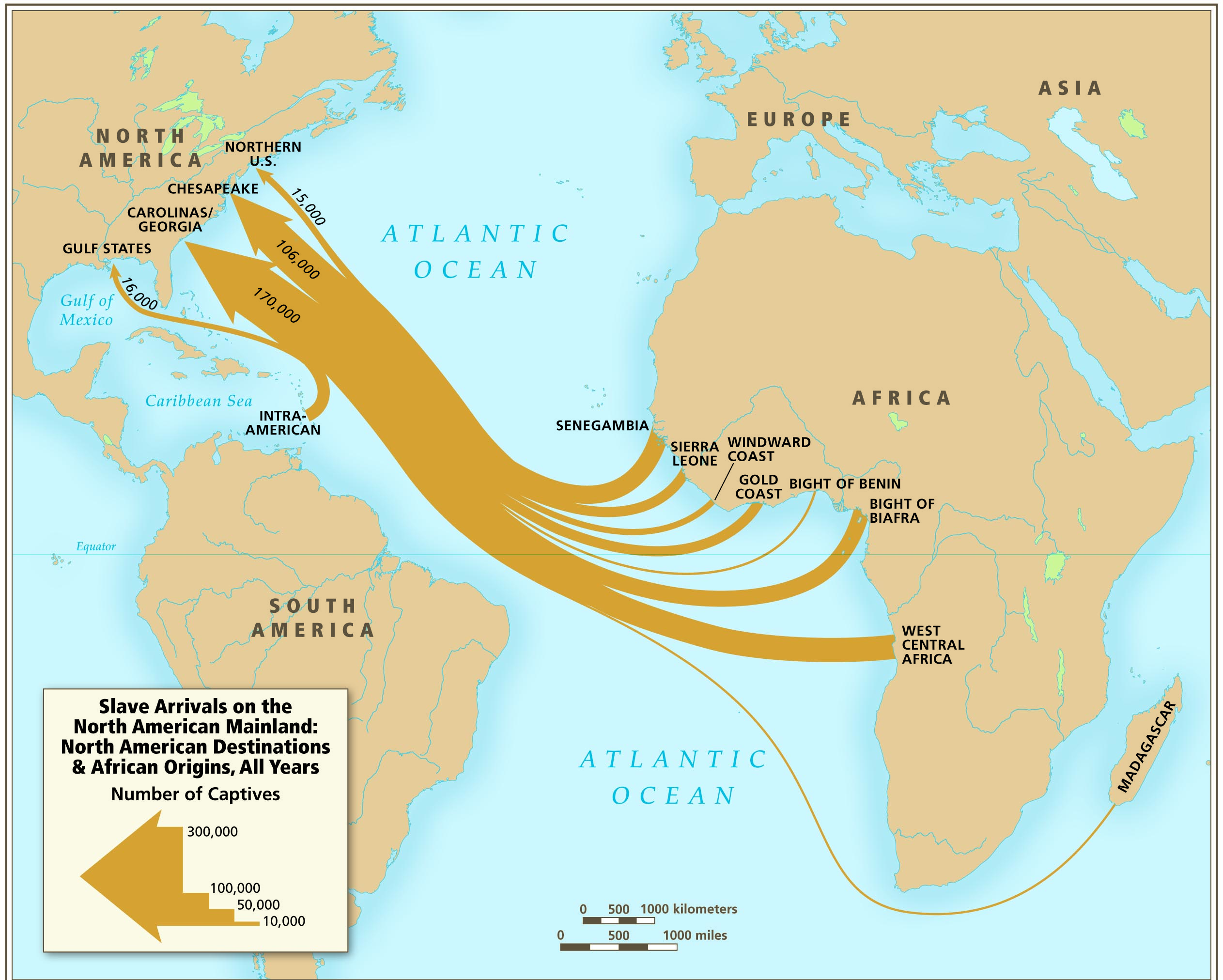
Image: www.ebay.com
The history of the Transatlantic slave trade is a haunting chapter in the tapestry of human civilization, a story of unimaginable suffering, unyielding resilience, and the enduring quest for freedom. This abhorrent practice, which spanned centuries and left an indelible scar on the African continent, served as a catalyst for massive human displacement and propelled the forced labor that fueled the economic engines of Europe and the Americas.
The Transatlantic slave trade emerged amidst a complex interplay of greed, colonialism, and the false pretenses of racial superiority. Driven by insatiable desires for cheap labor to cultivate cash crops such as sugar, cotton, and tobacco in the newly established colonies of the Caribbean and the American South, European powers embarked on a systematic and brutal enterprise to procure human capital from the African continent. They fanned the flames of conflict within African societies, fueling divisions and exploiting their vulnerabilities to enslave countless innocent lives.
The Horrors of Enslavement and the Middle Passage
Captured Africans were subjected to unimaginable cruelties as they were herded onto overcrowded slave ships bound for the New World. The Middle Passage, a perilous journey across the Atlantic Ocean, became a synonym for anguish, despair, and death. Crammed into unsanitary and inhumane conditions, thousands succumbed to disease, starvation, or the brutality of the crew. Those who survived endured a life of toil and degradation in distant lands, their spirit and humanity ruthlessly suppressed to maintain the ironclad grip of slavery.
Upon arrival in the Americas, Africans were stripped of their identity, their names replaced with dehumanizing numbers or appellations that reflected their perceived status as mere commodities. They were forced to work under the unrelenting sun, their bodies broken and their spirits crushed. Yet, amidst the unimaginable horrors of their plight, their resistance never faltered. Slave revolts, large and small, erupted throughout the Americas, a testament to the unyielding spirit of a people who refused to be extinguished.
The Impact of the Slave Trade on Africa
The Transatlantic slave trade ravaged Africa, leaving behind a legacy of profound social, economic, and demographic disruption. Entire communities were torn apart, and the loss of manpower crippled the agricultural productivity and stability of many African regions. Moreover, the forced displacement of millions of Africans created a vacuum that was filled by European colonial powers, leading to the scramble for Africa in the late 19th century and the eventual colonization of the continent.
The psychological and cultural scars inflicted by the slave trade extended far beyond the direct victims. It undermined African self-worth, perpetuated negative stereotypes, and cast a long shadow over the perception of Africa in the eyes of the world. The legacy of slavery still lingers in many societies today, as the wounds of the past continue to reverberate in contemporary inequalities and racial prejudice.

Image: ap.gilderlehrman.org
History Of Slave Trade In Africa
Abolition and the Legacy
The abolition of slavery in the 19th century marked a turning point in history, but the struggle for equality and justice continued for centuries after. Post-abolition societies grappled with the complexities of racial integration, while the echoes of slavery’s horrors could still be felt in the racial discrimination and social stratification that persisted. The civil rights movements of the 20th century emerged as the latest chapter in the protracted battle against the insidious legacy of slavery.
Today, the history of the transatlantic slave trade serves as a profound reminder of the horrors that humanity can inflict upon itself. It stands as a testament to the resilience and determination of the African people, whose spirit was never extinguished, even in the face of unimaginable adversity. The legacy of slavery continues to shape the African diaspora and the societies in which they live. It is a constant reminder of the enduring struggle for equality and a call to action for a world where the dignity of all human beings is truly respected.






